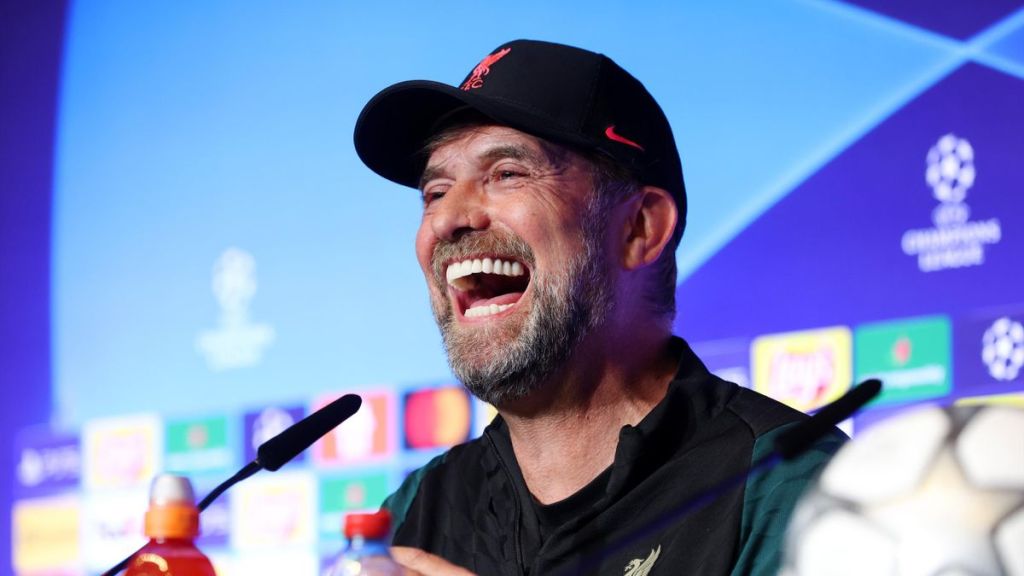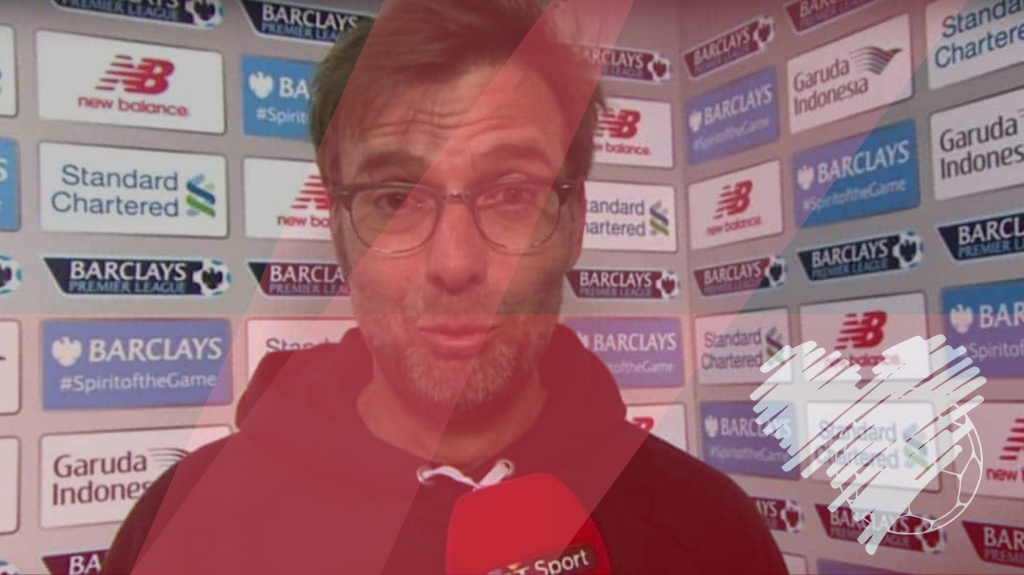
“If we can’t do it, let’s fail in the most beautiful way”.
The month of May is always a beautiful, curious one, sitting not half way through the year but is the most common arena to mark the end of eras. Schools are out for summer, some out forever. University life fades into the mythical too – other important dates that also occur during the month of rebirth, inspiration and excitement include May 8: No Socks Day, May 16: Dance Like a Chicken Day and of course May 19th 2024: The End of the Premier League Season – the end of the Jurgen Klopp era at Liverpool.
“It’s not important what people think when you come in, it’s much more important what people think when you leave.”
On January 26th, Liverpool fans the world over were shocked to hear their beloved manager was to leave at the end of the season. In hindsight it was probably too soon to announce something so major; if a week is a long time in football, half a season is an eternity. But now that all the emotions have largely been dealt with, the big question being asked, mainly by those with no involvement with the club: has he been a success? At first utterance the answer by anyone with even a basic knowledge of sport is an absolute yes. But for the team he built and for the team Liverpool once were, is one league title and one European title enough to deem the man an unmitigated success? Let’s see.
An episode of the wonderful, quirky comedy Community tried to answer a similar question, “Nicolas Cage, good or bad?”. “There’s a spectrum, and Cage is on it” concluded Abed, the show’s uncontested expert in the field of TV and movie culture. Yet when tasked with pinpointing Nicolas Cage’s location on the good-bad scale, he is unable to do it. Klopp’s “success”, or lack of, should also be analysed on a spectrum. When posed with the question ‘what is a successful season for your club’ – one answer received is vital in our understanding. Success, one respondent determined, is relative.
For Celtic, he claimed, a successful season is winning the league, at least one domestic cup and a decent run in Europe, but for his own Dundee United, winning the second division was everything. Forget cup runs and all outside distractions, win the league and focus on next year. The question was also posed to a Blackburn supporter – he deemed success as bettering last season, if even by a point, and flirting with the quarter finals in a cup run. Beating Burnley would also be a highlight but maybe only a fleeting one. The response of a supporter of Manchester United should probably lie closer to where success at Liverpool might be found on the Cage spectrum. This supporter gave a frank response: “In recent years I have had to settle for what became known as ‘The Andy Mitten Standard’ – top four, and a cup – but now I don’t even know if that is realistic.” Having suffered “the meandering lurch from one humiliating disaster to the next, however, I think success now would be as abstract as seeing some semblance of coherent strategy both on the pitch and behind the scenes”.
Now with some relativity in our back pockets to help us understand what success means, let’s look at where Liverpool were pre-Klopp. Ignoring the roller-coaster SAS season in 2013/14, where Suarez, Sturridge and Sterling among others plundered 101 goals – more than any Liverpool team had managed since 1896 – to somehow finish second, Liverpool’s record in the Premier League read a meagre 7th, 6th, 8th, 7th and 6th. They also finished Klopp’s first chaotic season in 8th place. Klopp’s record since, however, reads a more appetising 4th, 4th, 2nd, 1st, 3rd, 5th and in his final season he has finished 3rd. So gauging by the Blackburn standard of success, Klopp has had more successful seasons than ones in which he has failed to improve. Of course these numbers can only tell part of the story. Where Klopp’s success, or lack of, must be investigated though is through the Man Utd determination of success whereby “seeing some semblance of coherent strategy” – and more importantly, a culture transplant is the true sign of success.
Like all great transformative leaders, he will of course be remembered for his amazing ability to communicate. When he arrived, in his first interview he stated that the fans had to change from doubters to believers. This was the real beginning of the change, that was to see wild celebrations after beating Norwich 5-4 with a last minute Lallana goal. Celebrations that were vilified and mocked by most, but were the beginning of a change in strategy. The vision was clearly laid out. This team does not give up.
The most famous example of course was 4-0 ‘corner taken quickly, Origi’ face-melt game against Barcelona in the Champions League semi-final. With his team 3-0 down in the first leg, Barcelona merely had to get one goal and their destiny was set, and they were sure to get one goal right?! Liverpool lined up without their talismen Mo Salah and Bobby Firmino – two players so important in getting them to this position.
Instead journeyman Shaqiri lined up for his first start in months, in an unfamiliar position. But it all didn’t matter, the culture Klopp had built made the difference and Liverpool triumphed. When asked after the game what he said to get that response from the team, Klopp replied, “I told the boys before it was impossible, but because it’s you boys, we have a chance.” A far cry from former manager Roy Hodgson’s claim that winning against Everton at Goodison “would have been Utopia.”
After winning the league Klopp claimed “these boys are fucking mentality giants”. But even when a season didn’t go well there were signs of the culture coming through. The infamous “no centre backs season” of 2020/21 was destined for complete failure until a wonderful final run of good form saw them finish 3rd against all the odds. The pinnacle of the season, and a personal favourite, was Alisson’s goal against West Brom. Despite losing a record number of games at home that season, the team needed to get all the wins they could to get into the Champions League and salvage some form of success from the season. Drawing 1-1, heading into the final minutes, up stepped Alisson to send the most beautiful header into the corner of the net and in doing so, sent the team into the lead.
There were one offs too of course. Two 7-2 results within weeks of each other, one in the win column, one, a miserable defeat to Aston Villa. Then of course there was a 7-0 against the fiercest of rivals. Many great games, many horrible defeats – all done in the most beautiful way.
But of course with the team he built, from what it was, most will continue to argue that one league and one Champion’s League is just not enough to determine his reign as the success it could have been, and they are right. But a recent statistic that went viral determined that of Klopp’s 491 games, a different result in only five of them would have meant 3 league titles, 3 Champion’s League titles, and a UEFA Cup in his maiden season.
The stat, rightfully or wrongly, led to a barrage of jokes and would have been, could have been jibes. But the stat isn’t meant to be read that way. It is merely a pointer to show how close things were and how tight margins are in football and sport in general. Of course, Klopp could have done better and there are at least 115 reasons for him not doing so, but one thing is for sure: he will never walk alone again. But from a Utopian world where Liverpool might win at Goodison Park, Klopp’s success can only be viewed highly on the Cage spectrum. “Boom!” indeed. Now go dance like a chicken before it is too late – but then there’s always next year.


Leave a comment